Core Group
The Core Group is a fundamental body for ReMO. Its main role is to organise activities for proposal to the Management Committee, facilitate the day to day running of the Action and to help coordinate the activities of the Working Groups. ReMO’s Core Group is made up of the Chair, Vice-Chair, a chair for each of the three Working Groups, a Science Communications Manager, an Short-Term Scientific Mission Coordinator, an ITC Conference Grant Coordinator and a Grant Manager:
| Chair | Dr. Gábor Kismihók |
| Vice-Chair | Dr. Stéphanie Gauttier |
| Working Group 1 Chair | Dr. Janet Metcalfe |
| Working Group 2 Chair | Dr. Stefan Mol |
| Working Group 3 Chair | Dr. Darragh McCashin |
| Grant Awarding Coordinator | Prof. Gökçe Gökalp |
| Science Communications Manager | Mathias Schroijen |
| STSM Coordinator | Dr. Murat Güneş |
| ITC Conference Grant Coordinator | Dr. Maria Bostenaru Dan |
| Grant Manager | Dr. Brian Cahill |
Chair, Dr. Gábor Kismihók
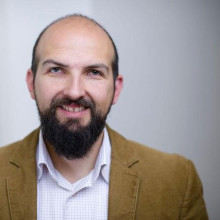
Since I obtained my summa cum laude PhD in management sciences (information management) in 2012, I have been concentrating my research efforts on the multi-disciplinary area of matching processes between education, labor market, and individuals. Previously, I founded the Center of Job Knowledge Research at the Amsterdam Business School, University of Amsterdam (UvA). Since then I have supervised doctoral research at the intersection of the following fields: Knowledge Management, Learning Analytics, Data Science and Organizational Behavior. I published my research in various peer-reviewed international journals and book chapters, mostly in the fields of knowledge management and education (e.g.: Organizational Research Methods, Journal of Learning Analytics (JLA), Journal of Vocational Behavior, and British Educational Research Journal). I regularly review manuscripts for academic journals and conferences in the scientific community I am engaged with (e.g. Computers in Human Behavior, JLA, LAK).
As the coordinator of the FP7 MSCA ITN Eduworks project, I developed a multi-disciplinary training programme for graduate students. This included the development of a transversal (e.g. writing and communication skills) and a personalized, research specific training programme covering methodological (advanced statistical methods, research design) and technical (data science, basic coding skills) courses for social scientists. Utilizing the above-mentioned training, I organized a number of summer and winter schools. Further, I worked out a complex quality management system to monitor the training progress of a multi-disciplinary group of graduate students.
Vice Chair, Dr. Stéphanie Gauttier
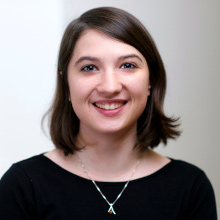
Assistant Professor at Grenoble Ecole de Management doing research at the intersection of information systems, human-computer interaction, and ethics. Stéphanie Gauttier specializes in qualitative methods, especially Q method. Stéphanie received her PhD in Information Systems Management from the University of Nantes. She has a masters in Political Sciences and a masters in Communication Sciences, and over five years of experience in the marketing industry. As a result, her research crosses disciplines and was applied to consumers (PhD), learners (EDUWORKS), and more recently to the healthcare domain (Responsible-Industry and GLASNOST). She was awarded an individual Marie Curie fellowship in 2018, was nominated on the list of 400 women in the NL across all industries in the "bright mind" category in 2018, and received the Brenner award for her work in Q-methodology in 2019. Stéphanie worked for over 5 years for the Publicis group in Russia before embarking on an academic career.
Working Group 1 Chair, Dr. Janet Metcalfe
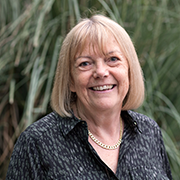
Dr Janet Metcalfe OBE is Head of Vitae, an international programme with a mission to lead world-class career and professional development for researchers. She leads on Vitae’s activities relating to the Concordat to Support the Career Development of Researchers, the UK equivalent to the European Charter and Code, and the UK process for the HR Excellence in Research Award. Janet was a member of the Marie Skłodowska-Curie Actions Advisory Group (2013 –2017).
She manages the Culture, Employment and Development in Academic Research Survey (CEDARS), a large-scale biennial survey of researchers’ experiences. She has recently undertaken two surveys of the impact of Covid-19 on the mental health and research activities of researchers and research groups. She works internationally with research institutions and funders to create professional development programmes and training for researchers at all stages of their research career.
Recent projects include: Exploring the wellbeing and mental health of doctoral researchers; Research Integrity: a landscape study and an H2020 project for EURAXESS on the intersectoral mobility of researchers. She has authored a series of careers publications under ‘What do researchers do?’ Her recent publications include: ‘What do research staff do next?’ on the career paths of postdoctoral researchers who leave European research organisations to work beyond academia. Janet led the development the Vitae Researcher Development Framework that describes the knowledge, skills and attributes of highly effective researchers.
Working Group 2 Chair, Dr. Stefan Mol
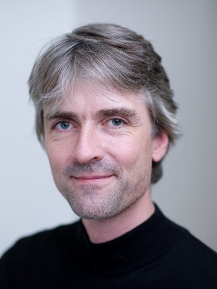
Stefan T. Mol is assistant professor in Organizational Behavior and Research Methods at the Amsterdam Business School of the University of Amsterdam and co-founder and board member of the Scilink foundation. He received his Master's degree in psychology at the University of Amsterdam in 2000, and his PhD in psychology in 2007, at the Institute of Psychology of the Erasmus University Rotterdam. Stefan was/is involved in the EU-Funded Leonardo da Vinci Ontohr, Med-Assess, Ontotech and Nursing AI projects. From 2013-2017 Stefan served on the Board of Management and Supervisory Board of the FP7 Marie Curie Initial Training Network (ITN) Eduworks (see http://www.eduworks-network.eu) a project aimed at the socio-economic and psychological dynamics of labour supply and demand matching processes at aggregated and disaggregated levels. Finally, Stefan was involved in the coordination of a university-wide project aimed at establishing Learning Analytics at the University of Amsterdam from 2013-2016, and its successor from 2017-2019.
Working Group 3 Chair, Dr. Darragh McCashin
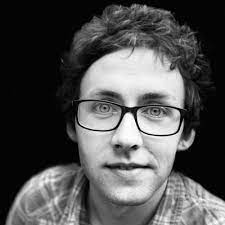
Darragh McCashin is an assistant professor in Psychology at Dublin City University. His MSc in applied forensic psychology at the University of York focused on online sexual offending. He was research assistant and associate lecturer at the University of Lincoln, researching case formulation of online sex offenders using mixed methodologies. He pursued his PhD at University College Dublin as part of the TEAM Innovation Training Network funded by the Horizon 2020 programme under the Marie Skłodowska-Curie Actions. His PhD thesis examined how to effectively integrate computer games/apps to support structured delivery of mindfulness-based cognitive behavioral therapy in school settings.
Grant Awarding Coordinator, Assoc. Prof. Gökçe Gökalp
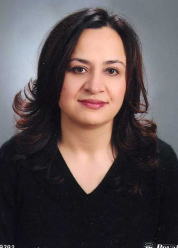
Gökçe Gökalp is an associate professor in the Department of Educational Sciences at the Middle East Technical University (METU) in Ankara, Turkey. She completed her PhD at the University of Southern California, where she played a role in the establishment of the Rossier School of Education’s Doctoral Support Center and subsequently worked there as a dissertation advisor. She has established and ran a Graduate Student Education and Academic Support Unit at METU for 4 years with a project grant. She conducts research on issues related to doctoral education, academic support services for doctoral students and researcher mental health and she has several publications in these fields. She recently contributed the chapter on Turkey in Taylor, S., Kiley, M. and Holley, K.A (2020) The Making of Doctoral Supervisors. London, Routledge.
Science Communications Manager, Mathias Schroijen
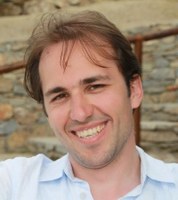
Mathias Schroijen is a member of the Postgraduate Office at the Université Libre de Bruxelles (ULB). As a project leader he is responsible for the development of transferable skills training programmes and career development services for researchers. Mathias has a research background in health psychology and is currently finalizing his PhD in respiratory psychophysiology (KU Leuven). Besides his research, he focused on PhD community building at the local level (PhD Society at KU Leuven), the construction of training and career development services at the institutional level (project manager MSCA-Cofund IF@ULB) and the representation of early career researchers at the European level (secretary of Eurodoc).
STSM Coordinator, Dr. Murat Güneş
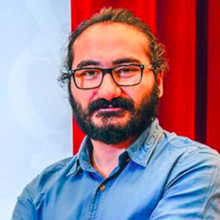
Murat Güneş obtained his PhD in the Area of Defense Industry, Aeronautics and Astronautics at Micro and Nanotechnology Interdisciplinary Graduate Program at Middle East Technical University. He was founder and CEO of Enerins Ltd. and He3 Ltd. that were based on developing custom based measurement instruments and wearable thermoelectric power generators, thermoelectric heaters and coolers. He was a Marie S. Curie Postdoctoral Fellowship at Orsay Molecular Chemistry and Materials Institute at University of Paris Sud 11, Paris/France. He is currently Assist. Prof. at Erzincan University, Turkey. He volunteers at the Marie Curie Alumni Association and was previously Secretary of the association.
ITC Conference Grant Coordinator, Dr. Maria Bostenaru Dan
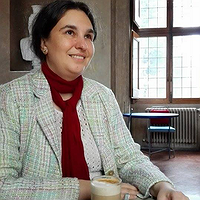
Maria Bostenaru Dan, Dr. Dipl.-Ing. is researcher at the Department of Research Management, „Ion Mincu“ University of Architecture and Urbanism, Bucharest, Romania. Graduated in architecture, focused on urban planning, at the University of Karlsruhe (TH), Germany. Her doctorate is from the “Ion Mincu” University of Architecture and Urbanism, Romania, in architecture. Her postgraduate studies in Karlsruhe, Germany, were in regional planning and civil engineering. She was a postdoc in geography in Bucharest and a postdoc in architecture in Rome. She holds university certificates in multimedia work, project management, psycho-pedagogy, knowledge of Germany and international competence from Karlsruhe. She is currently enrolled for a master in practical informatics from the FernUniversität Hagen. Her research focuses primarily on disaster management, particularly in 20th century heritage, including economics of conservation. Other research topics regard landscape architecture and digital methods in arts and humanities.
ReMO Grant Manager, Dr. Brian Cahill

Dr Brian Cahill works in the Learning and Skills Analytics Lab of the Leibniz Information Centre for Science and Technology in Hannover as Grant Manager of the COST Action CA19117 on Researcher Mental Health. He is a Member of the Governing Board of EuroScience and was Chair of the Marie Curie Alumni Association from March 2016 to February 2018. In these roles, he engaged with early-career researchers on topics ranging from researcher career development, innovation, research funding, science communication, science policy, researcher pensions, research integrity, responsible research and innovation and many more.
He studied Mechanical Engineering in Ireland and moved to Germany in 1998 to take up a position with Hewlett Packard. He received his PhD for work in electrokinetically-driven fluid flow from the ETH Zurich in 2004 and subsequently carried out postdoctoral research in colloid and interface science at the University of Geneva. He was a Marie Curie fellow and Junior Research Group Leader at the Institute for Bioprocessing and Analytical Measurement Techniques in Heilbad Heiligenstadt (Germany), where his research interests focussed on measurement techniques for droplet-based microfluidics.

The ReMO COST Action on Researcher Mental Health is funded by the COST Association with support from the Horizon Europe Framework Programme of the EU under the project number CA19117.
COST (European Cooperation in Science and Technology) is a funding agency for research and innovation networks. Our Actions help connect research initiatives across Europe and enable scientists to grow their ideas by sharing them with their peers. This boosts their research, career and innovation.

